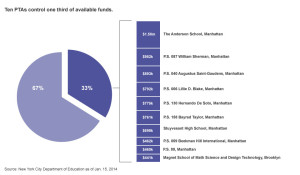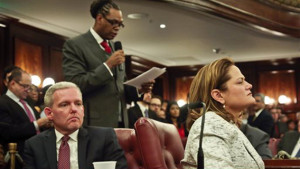 Mayor Michael Bloomberg announced that he is planning a ban on large sugary drinks in New York City to combat obesity. The proposal has already prompted familiar complaints that the mayor is turning New York City into “Nannyville.” To fast-track the restriction on beverage cup sizes, the mayor is seeking an amendment to the city’s health code via the Board of Health, which licenses food and drink establishments and on which he controls a majority of votes. That means he does not need to go through the often adversarial City Council for approval.
Mayor Michael Bloomberg announced that he is planning a ban on large sugary drinks in New York City to combat obesity. The proposal has already prompted familiar complaints that the mayor is turning New York City into “Nannyville.” To fast-track the restriction on beverage cup sizes, the mayor is seeking an amendment to the city’s health code via the Board of Health, which licenses food and drink establishments and on which he controls a majority of votes. That means he does not need to go through the often adversarial City Council for approval.
It’s a neat trick – but also not a new one for the mayor. In today’s Daily Q we ask: What has Mayor Bloomberg been able to win without seeking City Council approval?
If you have information or insight to share, write us, tweet @thenyworld or comment below.
What we found
Since taking office in 2002 Mayor Bloomberg has pushed through a number of policies without City Council approval. Many of these — like the bans on trans fats at restaurants, the prohibition of smoking on public land and calorie count signs at city eateries — have come from the Board of Health. But the mayor controls a number of other government bodies that Bloomberg has put to work on his behalf.
One is the Franchise and Concessions Review Committee, whose members are all selected by the Mayor. Earlier this year, it approved a major deal to give developer Donald Trump control of a Bronx golf course, at the behest of the city’s Parks Department. The mayor also has a controlling vote on the Panel for Educational Policy, which has approved a series of controversial school closures supported by the mayor.
Another board that can act unilaterally is the Board of Standards and Appeals (BSA), which grants zoning exemptions. All of its members are appointed by the mayor. In February the BSA voted unanimously to give Whole Foods a variance to build a supermarket in the Gowanus neighborhood of Brooklyn. Many local residents and manufacturers opposed the project because, they argued, it would change the character of the neighborhood and drive up taxes. But when they lobbied the BSA, they found their concerns pushed aside in favor of the developer’s claim of hardship. While the mayor never explicitly supported the project, some locals perceived the BSA’s approval as a sign of endorsement.
Two years earlier in 2010 the good government group Citizens Union urged the City Charter Revision Commission to diversify the BSA’s representation, but was unsuccessful — the mayor controlled that commission, too.
Last but not least, Mayor Bloomberg went to the state legislature to get approval for outer-borough taxis when the City Council would not cooperate.
UPDATE 6/1/12: A State Supreme Court judge issued a restraining order on Friday against Mayor Michael Bloomberg’s plan to create thousands of new livery cab licenses. Initially the City Council stood in the way of granting the licenses, but Bloomberg successfully side stepped City Hall when he asked the State legislature to approve the plan. This is a big setback for the Mayor. In addition to 18,000 livery cab licenses, the law would also have created 2,000 yellow taxi cab medallions valued at $1 billion. Bloomberg’s budget relies heavily on that money, and the final budget document must be ready by the end of June as mandated by the City Charter.









